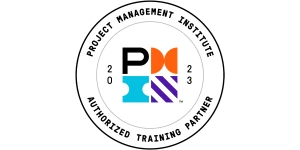How Does Six Sigma Relate to Project Management?
Six Sigma is a unique set of techniques that helps companies make their processes more efficient. It enables companies to improve the effectiveness of their production processes with a data-driven approach. Six Sigma is intertwined with project management, as it helps companies complete large-scale projects on time.
What is Six Sigma?
It is a unique set of tools for improving business processes. Bill Smith, an American engineer, introduced this concept in the 1980s, initially intended to help manufacturers reduce product defects to a negligible rate. However, Six Sigma has since spread to many non-manufacturing sectors, such as technology, banking, insurance, healthcare, etc.
Six Sigma involves examining business problems to identify and fix their root cause, ensuring the issue doesn’t reoccur. This strategy helps project managers to deliver successful projects on time.
Learn more about our Six Sigma training.
DMAIC
DMAIC is an integral part of the Six Sigma methodology. It outlines the phases for solving any problem identified during a project: Define, Measure, Analyze, Improve, and Control.
1. Define
The first step to solving a problem is to define it. What is the problem? When did it begin, and how long has it lasted? How was the problem discovered, and is there enough data to prevent the issue from causing further damage?
2. Measure
Quantify the magnitude of the problem at hand. You must collect accurate data and keep at it as you work to solve the problem. Identify the key metrics that need to be solved and create a formal data collection plan.
3. Analyze
Analyze the issue to identify the cause. Multiple experts can brainstorm and hypothesize about the issue to find the root cause. You’ll work with the data collected earlier to analyze the problem.
4. Improve
After analyzing the root cause, the next logical step is to find a solution. Every personnel involved in the project can brainstorm possible solutions and collect data to confirm if there is a noticeable improvement.
5. Control
After finding a solution, it’s vital to maintain it to prevent the problem from repeating. The team must constantly monitor the project and ensure the improvements remain in place. They can document the progress to present to external stakeholders.
Six Sigma and Project Management
Six Sigma is a valuable skill every project manager should have. Everyone involved in a business project can apply the DMAIC strategy to identify and solve mounting issues. Six Sigma provides a formal framework for businesses to reduce waste and improve efficiency, and it’s helpful for project managers to be well-versed in these techniques.
Six Sigma certification, from the White Belt to the Master Black Belt, gives people relevant knowledge to improve organizational productivity. Certified Six Sigma experts have valuable project management skills that companies pay top dollar for.
Applying the Six Sigma methodology to project management gives various benefits, including:
- It leads to better communication and collaboration between project stakeholders. The DMAIC strategy requires carrying everyone along and getting their input to create solutions to pressing issues.
- Increased customer satisfaction when products arrive on time with minimum defects.
- Reduced production costs and higher profits because resources are allocated efficiently.
- Increased productivity for an organization, with problems fixed as soon as possible.
Conclusion
Six Sigma methodologies offer great value to project managers and everyone participating in organization projects. They provide many benefits, which we’ve described above.
At 6Sigma, we offer Six Sigma certification courses from the White Belt to the Master Black Belt. Our courses imbibe practical knowledge that helps employees reduce waste and boost productivity. Contact us today to see how we can help.
For more information, click here
SixSigma.us offers both Live Virtual classes as well as Online Self-Paced training. Most option includes access to the same great Master Black Belt instructors that teach our World Class in-person sessions. Sign-up today!
Virtual Classroom Training Programs Self-Paced Online Training Programs








